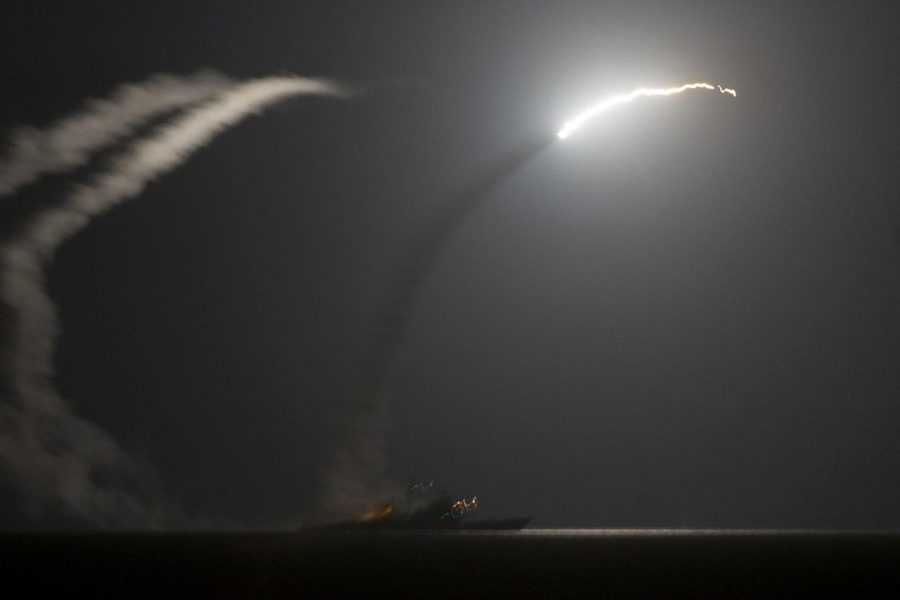On campus and around the world, international tensions are growing in response to a United States airstrike on the Al Shayrat airbase in Syria. The attack marks the first decisive U.S. military action against the regime of Bashar Al-Assad, the current President of the Syrian government.
President Trump ordered that the strike consisting of 59 Tomahawk cruise missiles be carried out after allegations that the Assad regime used a chemical agent known as sarin gas on a civilian population in an attack that left over 80 people dead.
Members of the media and Congress have noted that the strike is a marked change from the approach of the previous administration. According to CNN, Trump previously opposed direct military action against Assad during his campaign, but shifted policy after witnessing images from the chemical attack.
Karl DeRouen is the director of the International Studies Program in the Department of Political Science. DeRouen said that the move by the Trump Administration was certainly tumultuous, though its message was not quite clear.
“Realistically I think the world does not see the strike as an unambiguous sign the U.S. has decided to commit itself to a prolonged use of military force to deal with this crisis,” DeRouen said. While Assad has already criticized the attack, calling it a short-sighted act of aggression, it is unclear to what extent the U.S. opposes Assad’s government directly.
Russia, the long-time ally of Assad’s government, has already chastised the U.S. through the United Nations, DeRouen said. Russia, Assad, and the United States have previously been sharing military information channels while fighting the Islamic State in ISIS controlled territories. After the strike, those channels were closed, and Trump called for “civilized nations” to put an end to the conflict in Syria, according to Al Jazeera.
“I don’t expect allies to rush head-long into war in Syria, though it will be interesting to see what Israel does,” DeRouen said. “I suspect ISIS will remain a prime U.S. target.”
Former President Obama had previously demanded that Assad step down, and DeRouen stated that the critical decision for Trump’s Administration would be whether to continue that stance. With U.N. Ambassador Nikki Haley announcing that regime change is now a goal for the U.S. in Syria, it may be the case that Trump is taking matters even further.
The New York Times reported that Secretary of State Rex Tillerson has made comments that Russia has been “incompetent” in forcing Assad to abandon chemical weapons. With old tensions continuing to rise, DeRouen states that it is difficult to answer what the U.S. will do moving forward.
As of yesterday, Russia and Iran have stated that they will respond with force if the United States continues to oppose Assad’s government with military force, reports The Independent. With no clear solution of how to act in Syria, the responsibility falls to Trump and his staff to determine their next step in the political minefield ahead of them.









